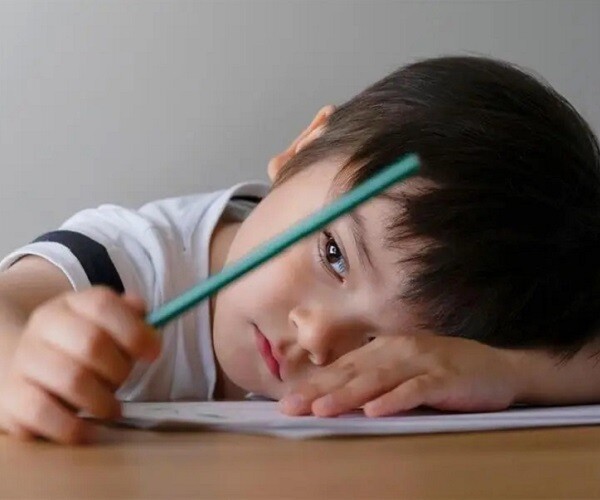“Dad, I don’t know how to answer this question. Will you scold me if I get it wrong?”
“The teacher praised someone else today. Am I not good enough?”
The truth behind these statements is a fear of failure and low stress tolerance, often accompanied by shyness. While children are not born with a fear of failure, educational gaps can easily lead them towards this mindset.


Three Heartbreaking Truths About Children’s Fear of Failure That Parents Should Know
“It’s okay” often means “You can’t afford to fail”
While many parents preach that “Failure is the mother of success”, their actions may contradict this. When a child doesn’t perform well on a test, a parent might say “It’s fine, just try harder next time”, but then sign them up for multiple test preparation classes. This can create immense pressure and confuse the child about the value of learning from mistakes.
Similarly, when a child falls while learning to ride a bike, some parents may say “Keep going, you can do it” while still holding onto the bike’s handles. This mixed signal can be conflicting for the child, who hears encouragement but feels controlled.
In reality, by doing this, parents are conveying the message that “You can’t afford to lose”. This instills a sense of perfectionism in children.
Constant praise for intelligence can lead to a distorted self-perception
Statements like “My child is so smart, they learn everything so quickly” or “They were born with this talent, they’re better than most people” are common among proud and supportive parents. However, this type of praise can create invisible pressure.
While these words may make a child feel proud, they can also lead to a fear of losing that label. Children praised for their intelligence tend to give up easily when faced with challenges, mainly because they’re afraid of no longer being considered “smart” if they fail. Instead of embracing obstacles, they may choose to avoid them.
Moreover, when a child’s worth is tied to their academic achievements rather than their efforts or learning process, it can create an unhealthy mindset.

Children labeled as “smart” often give up easily when faced with challenges.
Overprotection limits their right to “try and fail”
Some parents have a habit of clearing all obstacles for their children, believing they are too young or shouldn’t face any discomfort. However, this approach can hinder the development of independence.
While parental love and the desire to provide the best for their children are undeniable, not all expressions of this love are beneficial. When children are shielded from failure, they naturally develop a lower tolerance for it.

What Parents Can Do to Help Children Overcome Their Fear of Failure
Research shows that a fear of failure stems from a lack of psychological resilience, which can be developed through repeated “small failures” in daily life.
Allow your child to experience loss
As your child grows, let them experience defeat. For example, if they lose a game, instead of saying “You’ll win next time”, empathize with their loss first. Then, explain that losing is normal and that even negative emotions associated with failure are acceptable.

Allow your child to experience defeat and learn from it.
Set boundaries for their mistakes
While it’s normal to worry about your child making mistakes, remember that it’s through these mistakes that they will build self-confidence. You could set a rule like “You’re allowed to make the same mistake three times, but not a fourth. When you make a mistake, you must stand up for yourself”.
Model resilience yourself
If you frequently complain about work or life in general, your child is less likely to calmly face their failures. To raise a brave child who dares to try and fail, lead by example. Work on cultivating your resilience, and then use your words and actions to positively influence your child.
Before blaming your child, reflect on whether the issue lies with your parenting approach. Education has its pitfalls. While there’s nothing wrong with wanting a smooth path for your child, remember that no journey in life is wasted, and even failures and hardships have their upsides.
All the tears, complaints, and countless failures will eventually become your child’s armor of courage. So, smile and tell them: It’s okay to be afraid of failing! If you fail this time, take it as a lesson and start again.

Reflect on your parenting approach and whether it contributes to your child’s fear of failure.






































